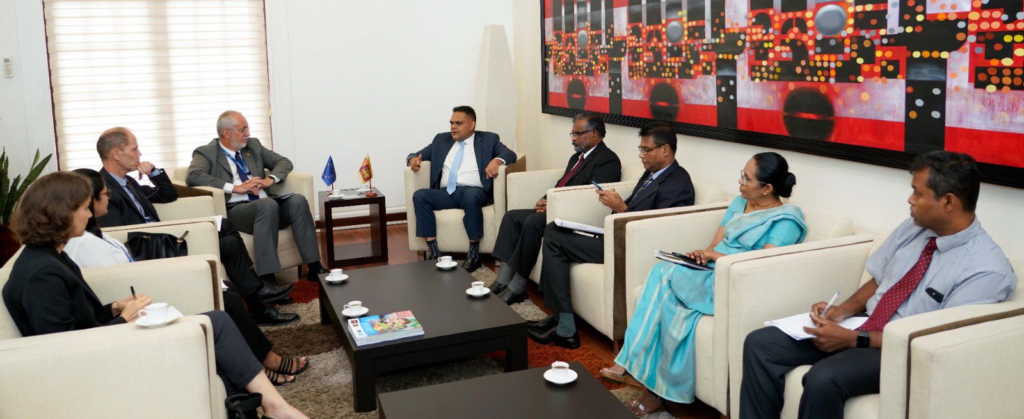Sri Lanka EU Collaborate with EUR 15M Deal for Sustainable Food Solutions
The Sri Lankan government and the European Union (EU) have recently inked a financial agreement aimed at advancing a circular economy and fostering sustainable consumption and production within the food sector.
Under this agreement, the EU will provide a substantial sum of EUR 15 million to enhance food accessibility for vulnerable populations in Sri Lanka. The funds will be utilized to establish more streamlined distribution channels, preventing food wastage, and converting excess food into valuable farming inputs such as organic fertilizers and animal feed.
Highlighting the significance of this initiative, Moreno Carmen, the Ambassador of the European Union to Sri Lanka and the Maldives, emphasized that Sri Lanka faces a myriad of challenges, including resource scarcity and the effective protection of environmental resources. However, within these challenges lies an opportunity to embrace a circular economy model that can drive the development of innovative technologies, business models, and entrepreneurship, ultimately contributing to a thriving economy.
Carmen stressed the importance of promoting circular economy practices as a vital step for Sri Lanka in mitigating the risks of future crises and establishing long-term food security and sustainability.


